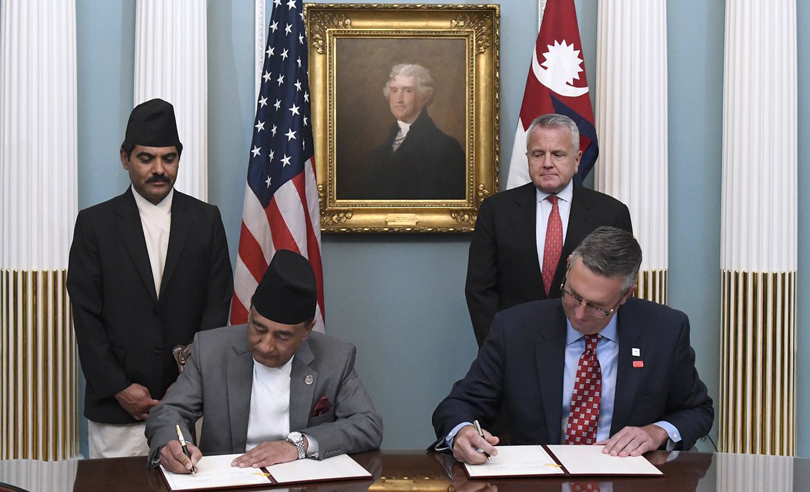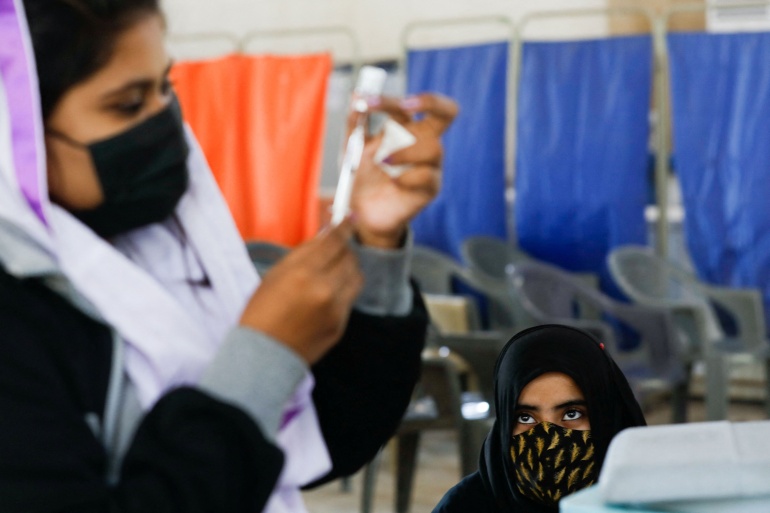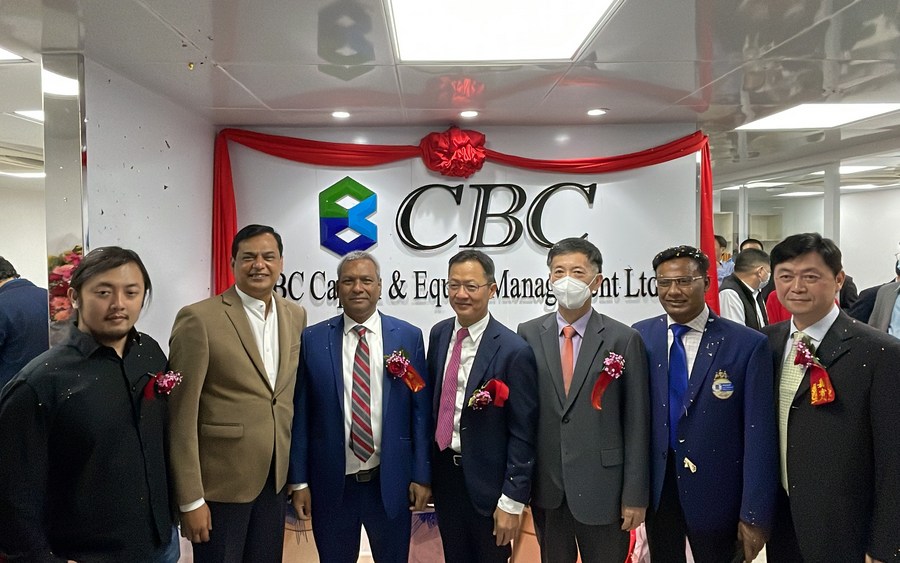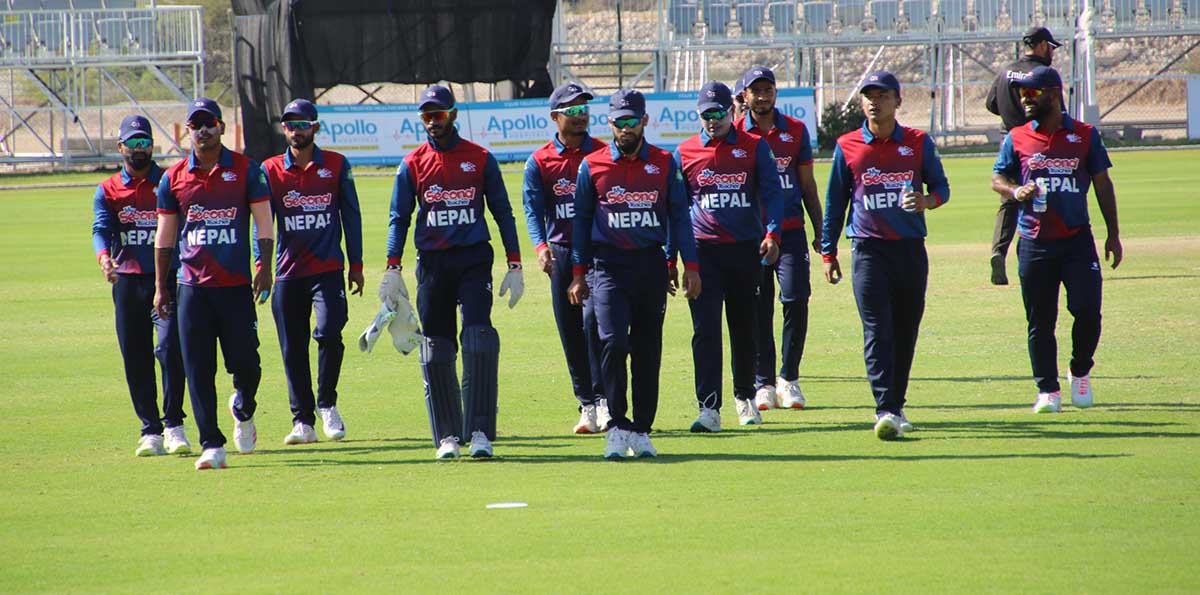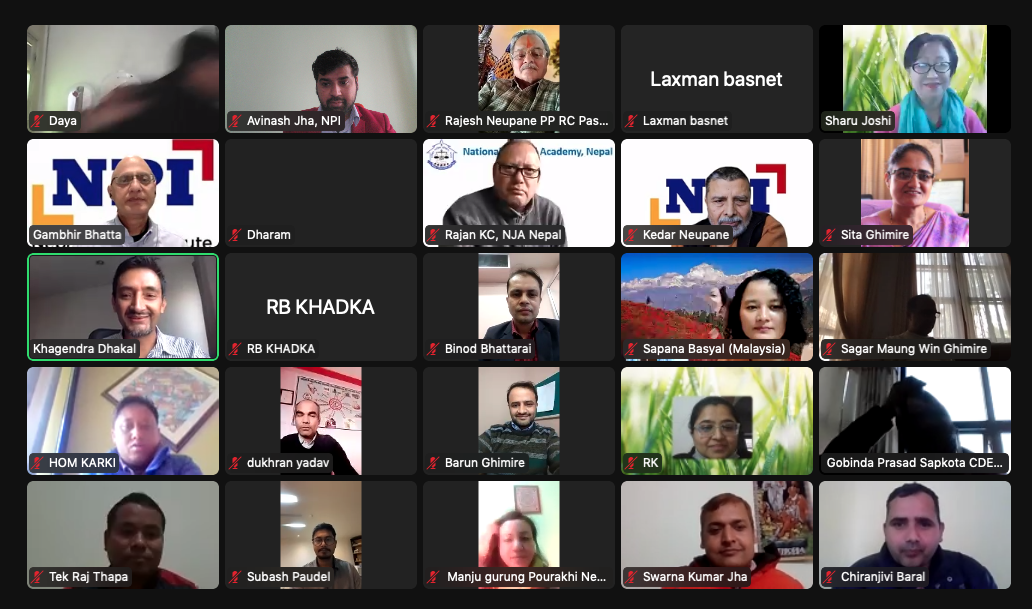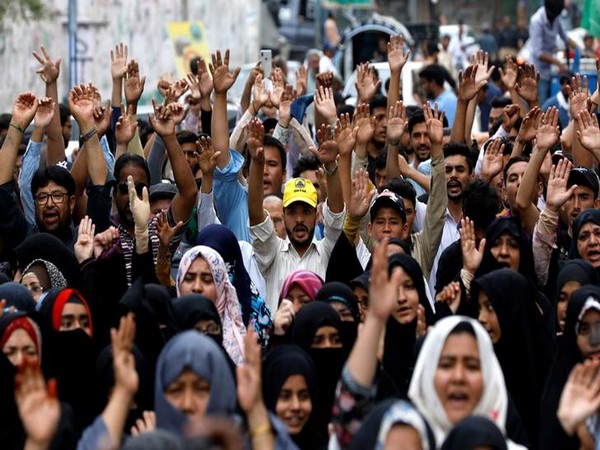Kathmandu — Despite urgent calls to ensure the equal distribution of Covid-19 vaccines in 2021, pharmaceutical
companies tragically failed to rise to the challenge of a once-in-a-century global health and human rights crisis.
Instead, they monopolized technology, blocked and lobbied against the sharing of intellectual property, charged high prices for vaccines and prioritized supplies to wealthy countries, said Amnesty International today in a new assessment of the leading Covid-19 vaccine developers.
Ten billion doses of Covid-19 vaccines were produced last year, more than enough to reach the 40% target of global vaccination set by the World Health Organization (WHO) for the end of 2021.
Yet Money calls the shots: Pharma’s response to the Covid-19 vaccines crisis – an update on Amnesty International’s September 2021 report ‘A double dose of inequality: Pharma companies and the Covid-19 vaccines crisis’ – reveals that just over 4% of those living in low-income countries had been fully vaccinated by the end of last year.
“More than 1.2 billion people in low and lower-middle-income countries could have been vaccinated by the end of 2021 if high-income countries and vaccine makers took their human rights obligations and responsibilities to heart,” said Rajat Khosla, Amnesty International’s Senior Director of Research, Advocacy and Policy.
“While high income countries hoarded vaccines, callously choking supply to poorer parts of the world, pharma companies played a pivotal role in this unfolding human rights catastrophe – leaving those most in need to cope on their own. These companies could have been the heroes of 2021. Instead, they turned their back on those who needed vaccines the most and just continued with business as usual, putting profits before people. If we want 2022 to be the last year of this pandemic, we need to shift course now to reach the 70% WHO-target by July of this year.”
In 2021, Pfizer, BioNTech and Moderna projected revenues of up to US$54 billion, yet supplied less than 2% of their vaccines to low-income countries. Chinese companies Sinovac and Sinopharm delivered just 0.4% and 1.5% respectively of their vaccines to low-income countries. Johnson & Johnson’s and AstraZeneca’s records on distribution were better – with 50% of their stock reaching low and lower-middle-income countries (with many of these doses provided as “donations” from upper-income countries, not as part of sales agreements).
However, both companies still refuse to share their technology and intellectual property through World Health
Organization-coordinated initiatives and are now abandoning their not-for-profit pricing model.
“Despite billions in public funding, these companies are continuing to put their own greed before their human rights responsibilities. It’s deeply concerning that profits are being prioritized over people – even in the face of more than 5.6 million people dead from Covid-19 to date. How many more variants do we have to live through before high-income countries and pharmaceutical companies realize that those in low-income countries must have access to vaccines – not just those living in rich ones?” said Rajat Khosla.
Further findings provided by Airfinity, a science and analytics company, up to 31 December 2021, include:
• AstraZeneca produced just under 2.4 billion vaccine doses in 2021 and supplied 1.7% of these to low-income countries and 70% to lower-middle income countries, an increase on the previous assessment.
• Johnson & Johnson produced just over 300 million doses in 2021 and delivered 20% of these to low-income countries and 31% to lower-middle income countries, a significant increase on the previous assessment.
• Moderna produced 673 million doses in 2021 and delivered 2% of these to low-income countries and 23.5% to lower-middle income countries, a significant increase on the previous assessment, but still short of what is required.
• Pfizer/BioNTech produced 2.4 billion doses in 2021 and delivered 1% of these to low income countries and 14% to lower-middle income countries, a slight increase on the previous assessment, but well below Amnesty International’s 50% target.
• Sinopharm produced just over 2.2 billion doses in 2021, most of which were supplied domestically within China. The company delivered 1.5% of its doses to low-income countries and 24% to lower-middle income countries, short of what is required for a fair distribution of its vaccines.
• Sinovac produced over 2.4 billion doses in 2021, most of which were supplied domestically within China. It delivered 0.4% of its doses to low-income countries and 20.5% to lower middle income countries.
Amnesty’s report also shows how these companies don’t share their intellectual property, knowledge and technology, putting in place obstacles to fair vaccine access, as well as actively lobbying against the relaxation of intellectual property rights.
“The fight for equitable vaccines is far from over,” said Rajat Khosla. “We will continue to call on pharmaceutical companies to prioritize delivery to low-income countries in order to meet the WHO’s target of 70% global vaccination before mid-2022. Everyone deserves a fair shot at a vaccine and as we enter our third year of the pandemic, it’s time that indeed everyone, living anywhere in this world, has immediate access.”
Amnesty International is also calling on companies to share intellectual property by issuing open and non-exclusive licences or participating in the Covid-19 Technology Access Pool (C-TAP), established to support the sharing of open and non-exclusive licences, publicly disclose all terms and conditions, and price vaccine doses so profit does not stand in the way of access to Covid-19 vaccines.
“Investors have also played a huge role in this global crisis. Their lack of meaningful action shows that while Covid-19 unleashed unimaginable suffering on millions around the world, they thrived, but did nothing to ensure their investments did not result in human rights harm on account of the profit-driven approach taken by pharmaceutical companies,” said Rajat Khosla. “We’re calling on investors to face up to their actions immediately and use their considerable leverage to pressure pharmaceutical companies to lift obstacles to fair access to vaccines, as well
as promote accountability and transparency.”






